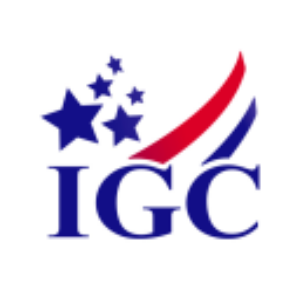IGC Pharma's TGR-63 Preclinical Results Show Substantial Reduction in Amyloid Plaque, a Key Hallmark of Alzheimer's Disease
- Mouse Studies Demonstrate Significant Reduction in Amyloid Plaque:
“These preclinical results for TGR-63 are highly encouraging. The significant reduction in amyloid plaque burden in an Alzheimer’s mouse model observed in this study suggests TGR-63 has the potential to be a transformative treatment for Alzheimer's disease. TGR-63 is filed for patent protection in
Alzheimer's disease is characterized by the buildup of abnormal protein aggregates in the brain, including amyloid plaques. These plaques are thought to play a major role in the cognitive decline and memory loss associated with the disease. Current medications for Alzheimer's primarily focus on reducing or clearing amyloid plaque, highlighting its importance as a therapeutic target.
In a mouse model of Alzheimer's, TGR-63 treatment led to a substantial reduction of amyloid plaque. Compared to untreated mice, TGR-63 treatment reduced plaque deposits by
Prior to in vivo studies, TGR-63 demonstrated its ability to disrupt the formation of toxic amyloid beta (Aβ42) aggregates in cell cultures and increase the viability of neuronal cells exposed to Aβ42, indicating potential neuroprotective effects. TGR-63's unique structure allows it to interact with amyloid beta aggregates, potentially disrupting their structure and promoting their breakdown or clearance by the body's natural waste disposal systems. This could ultimately lead to a reduction in plaque burden in the brain, although there can be no assurance. The positive results from these preclinical studies could pave the way for advancing TGR-63 through clinical trials. IGC Pharma expects to begin a Phase 1 trial for TGR-63 in 2025, although there can be no assurance.
About IGC Pharma, Inc.
IGC Pharma (“IGC”) is focused on Alzheimer’s disease, developing innovative therapies to address this devastating illness. The Company’s mission is to transform the landscape of Alzheimer’s treatment with a robust pipeline of five promising drug candidates. IGC-AD1 is currently undergoing a Phase 2 clinical trial for agitation in dementia associated with Alzheimer’s (clinicaltrials.gov, NCT05543681).
The remaining four molecules are in the pre-clinical stage of development. TGR-63 disrupts the progression of Alzheimer’s by targeting Aβ plaques, a key hallmark of Alzheimer’s. IGC-1C, targets tau protein and neurofibrillary tangles, representing a forward-thinking approach to Alzheimer’s therapy. IGC-M3, aims to inhibit the aggregation of Aβ plaques, potentially impacting early-stage Alzheimer’s. LMP is designed to target multiple hallmarks of Alzheimer’s including plaques and tangles for a comprehensive approach to the disease. In addition to our drug development pipeline, we are harnessing the power of Artificial Intelligence to develop early disease detection models, optimize our clinical trials, and explore new applications for our drugs.
Forward-looking Statements
This press release contains forward-looking statements. These forward-looking statements are based largely on IGC Pharma’s expectations and are subject to several risks and uncertainties, certain of which are beyond IGC Pharma’s control. Actual results could differ materially from these forward-looking statements as a result of, among other factors, the Company’s failure or inability to commercialize one or more of the Company’s products or technologies, including the products or formulations described in this release, or failure to obtain regulatory approval for the products or formulations, where required, or government regulations affecting AI or the AI algorithms not working as intended or producing accurate predictions; general economic conditions that are less favorable than expected; the FDA’s general position regarding cannabis- and hemp-based products; and other factors, many of which are discussed in IGC Pharma’s
View source version on businesswire.com: https://www.businesswire.com/news/home/20240625363805/en/
Investors
IMS Investor Relations
Walter Frank/Rosalyn Christian
igc@imsinvestorrelations.com
(203) 972-9200
Media
JVPRNY
Janet Vasquez
jvasquez@jvprny.com
(212) 645-5498
Source: IGC Pharma, Inc.






